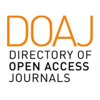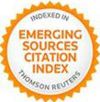Abstract
Keywords
Full Text:
PDFDOI: http://dx.doi.org/10.2423/i22394303v9n1p99
References
Benessia, A., Funtowicz, S., Giampietro, M., Guimarães Pereira, Â., Ravetz, J., Saltelli, A., Strand, R., & van der Sluijs, J. P. (2016). The Rightful Place of Science: Science on the Verge. Tempe, AZ: Consortium for Science, Policy & Outcomes
Bina, V., Chantepie, P., Deroin, V., Frank, G., Kommel, K., Kotynek, J., & Robin, P. (2012). European Statistical System Network on Culture Final Report. Luxembourg: Eurostat.
Bodo, C., Fischer, R., & Cicerchia, A. (1998). New frontiers for employment in Europe: the heritage, the arts and communication as a laboratory for new ideas. Rome: Associazione per l'Economia della Cultura – CIRCLE.
Council of the European Union. Conclusions of the Council and of the Representatives of the Governments of the Member States, Official Journal of the European Union 2008/C (319), 20-22. Retrieved from https://eur-lex.europa.eu/LexUriServ/LexUriServ.do?uri=OJ:C:2008:319:0020:0022:EN: PDF
European Group on Museum Statistics - EGMUS (2019). Data table. Retrieved from https://www.egmus.eu/en/statistics/data_table/
Eurostat (2016). Culture statistics. Retrieved from https://ec.europa.eu/eurostat/documents/ 3217494/7551543/KS-04-15-737-EN-N.pdf/648072f3-63c4-47d8-905a-6fdc742b8605
Eurostat (2018). Culture statistics - cultural participation by socioeconomic background. Retrieved from https://ec.europa.eu/eurostat/statistics-explained/index.php?title=Culture_statistics__cultural_ participation_by_socioeconomic_background .
Eurostat (2018). Culture statistics - cultural employment. Retrieved from https://ec.europa.eu/eurostat/statistics-explained/index.php?title=Culture_statistics_-_cultural_employment
Frisch, R. (1970). From Utopian Theory to Practical Applications: The Case of Econometrics. The American Economic Review, 71(6), 1-16. Nobel Lectures and 1981 Survey of Members (Dec., 1981). Retrieved from https://www.nobelprize.org/uploads/2018/06/frisch-lecture-1.pdf
Istituto Nazionale di Statistica. (2018). Il benessere equo e sostenibile in Italia 2018. Roma: ISTAT.
Pawson, R. (2006). Evidence-Based Policy. A Realistic Perspective. London: Sage.
Roberts , C. (2017). The Inbetweener. The New Role of Internships in the Graduate Labour Market. London: The Institute for Public Policy Research.
Saltelli, A., & Giampietro, M. (2017). What is wrong with evidence based policy, and how can it be improved? Futures, Vol. 91, 62-71.
Shades, L., & Jacobson, J. (2015). Hungry for the job: gender, unpaid internships, and the creative industries. The Sociological Review, 63(S1), 188–205.
Strassheim, H., & Kettunen, P. (2014). When does evidence-based policy turn into policy-based evidence? Configurations, contexts and mechanisms. Evidence & Policy A Journal of Research Debate and Practice, 10(2), 259-277.
Article Metrics
Metrics powered by PLOS ALM
Refbacks
- There are currently no refbacks.
Copyright (c) 2019 Annalisa Cicerchia

This work is licensed under a Creative Commons Attribution-NonCommercial-NoDerivatives 4.0 International License.
SCIRES-IT, e-ISSN 2239-4303
Journal founded by Virginia Valzano





